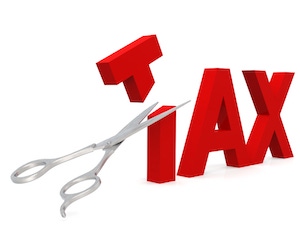July 8, 2018

 Representative Erik Paulsen (R-Minn) is taking another stab at passing a bill to repeal the 2.3% excise tax on most medical devices, part of the Affordable Care Act (ACA), also known as Obamacare.
Representative Erik Paulsen (R-Minn) is taking another stab at passing a bill to repeal the 2.3% excise tax on most medical devices, part of the Affordable Care Act (ACA), also known as Obamacare.
Paulsen introduced his most recent bid to repeal the device tax in January 2017. It has rare bipartisan support, with 43 Democrats among the 269 co-sponsors, reports Massdevice. Many of the supporters, like Paulsen and across party lines, represent states with a significant medtech industry. Minnesota, for one, is home to medtech giant Medtronic as well as numerous small to midsize OEMs and a bevy of suppliers, including plastics processors. Repealing the tax will bolster innovation and benefit the entire supply chain, said Paulsen. “We've got a lot of little companies that want to become the next Medtronic or Boston Scientific,” Paulsen told The Hill.
The medical device industry and representative associations have long maintained that the tax is a job killer and would siphon money away from R&D. There has been little hard evidence to back up that assertion, since the tax was only implemented for three years since it went into law in 2013: A two-year suspension was passed by Congress in December 2015 and another moratorium was enacted in January, suspending the tax through 2020. However, a study conducted by a researcher at Iowa State University published in the peer-reviewed academic journal Research Policy in June 2018 claims that R&D did, in fact, decline following implementation of the 2013 tax and that medical device companies lost about $188 million in revenue.
Using Compustat data from 2006 to 2015, study author Daeyong Lee, PhD, found that the excise tax reduced R&D investment, sales revenue, gross margins and earnings for medical device firms. In addition, the excise tax increased their global market sales intensity, global market diversification and customer diversification in the U.S. domestic market, he said.
Reporting on the study, the tctmd website produced by the Cardiovascular Research Foundation writes that these results should make policy makers reconsider a tax that directly affects only one industry, as Lee suggests in the paper. “Unless the government intends to disincentivize undesirable activities (e.g., pollutant emission or smoking), a selective excise tax on a specific item or a single industry is not usually more efficient to raise tax revenue than a broad tax base,” he writes. “Thus, if the U.S. government needs to raise tax revenue to compensate for the increase in healthcare costs but wants to maintain R&D activities in the medical device industry, policy makers should consider imposing the excise tax on other industries, as well, such as health insurance companies, which also reaped the benefits from the increased demand for their products after the ACA healthcare reform,” writes Lee in the study as reported by tctmd.
It’s no coincidence that Paulsen is pursuing another vote on repeal now, as he is up for re-election in the mid-terms. Some political pundits are calling the race against Democratic businessman Dean Phillips a toss-up. Successfully repealing the device tax, Paulsen told The Hill, “will actually show the Senate we want to get this done.” It will also give Paulsen a resonant talking point during the campaign.
The House may vote on the legislation as early as this month.
About the Author(s)
You May Also Like




